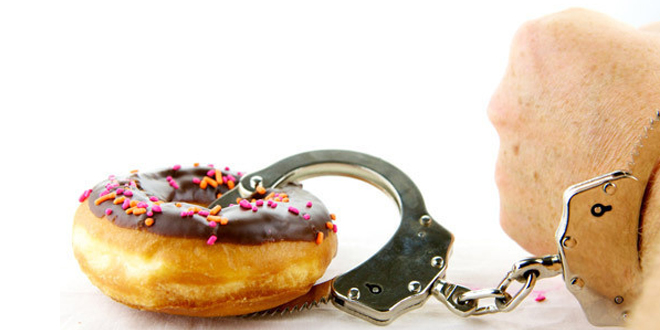
Food addiction and Side Effects on Your Health
Can you eat an entire bucket of ice cream, even though you know you are full? Your favorite food manufacturers have probably got you hooked. All the processed foods, specifically the ones that you crave for at odd times – regardless of your hunger state – are being made in a way that excites the pleasure centre of your brain. The pleasure center of the brain is usually triggered off by drugs like cocaine and heroine. Surprisingly though, science now has evidence that some foods can have the same effect.
Many palatable foods that are usually rich in sugar, salt and fat can trigger your brain to release dopamine (happy hormone). Once you experience this feeling after having a certain food item, your brain associates it to that food and you quickly start craving to have it again. Your craving to have that certain dessert is because of the concentration of sugar in it. It is pretty much similar to having drug addiction as they are both consumed in concentrated doses and are absorbed quickly by the body.
These pleasure signals carried out by the brain’s reward pathway can over shadow the signals of satisfaction and fullness that are also sent by your brain. This can lead to over eating even when you are full. Moreover you can also develop food tolerance – that is, you will crave to eat more, but are not fully satisfied.
It might sound like food addiction is an issue only for overweight or obese individuals. However, that’s not the case. According to a research in 2011 published by Frontiers in Psychiatry 10% of “underweight” people, 6.3% of “normal weight” people, 14% of “overweight” people and 37.5% of “obese” people can be diagnosed with food addiction, meaning this actually could be a real issue for many and not just obese individuals.
Signs of Food Addiction
The Department of Psychology at Yale University has developed a questionnaire which helps identify the signs of food action in people. It asks questions about your relationship with food and its impact on your personal life.
It includes:
- Tolerance: this is one you need to consume more of something to get the same effect as when you first started consuming it. It could also be when you consume something, there is a less effect on your body than when you first started.
- Withdrawal symptoms: the development of physiological or cognitive symptoms reaction to times of refraining or decreased utilization of a substance.
- Loss of control: incessant utilization of a substance in more prominent sums or over more times of time than was at first proposed
- A Desire or Repeated Failed Attempts to Reduce or Stop Consumption
- A Great Deal of Time Spent in Activities Necessary to Obtain, Use, or Recover
- Giving up Other Important Activities
Check out the criteria for food addiction here.
Scientists are still looking for the exact treatment for food addiction. It is much more complicated than drug rehabilitation. This is because an individual in drug rehab just needs to cut off from that certain drug, but food addicts still need to eat. It needs a massive amount of will power and control. A psychiatrist or nutritionists are the go-to people for food addiction as they can help you break the cycle of compulsive eating. Food Addicts Anonymous uses a 12-step program to help people over come food addiction. This program includes controlled diet and, abstinence from sugar, refined flour, wheat and, processed food in general.
You might not be a food addict but if you think you’re on the verge of being one cut down certain habits before you cannot have your favorite meal anymore.
- You might be overweight because of your binge eating but, do not go on vigorous diets. This can trigger more over eating and this vicious cycle becomes hard to break. Visit your clinician for help and for proper diet charts.
- Eat regularly. Do not starve yourself during the day and eat a lot for dinner. That can lead to over eating and sleeping on a full stomach. Do not skip breakfast as breakfast goes a long way with you.
- Make healthy choices. Avoid fast-food and any processed food. Pick out organic foods like fresh vegetables, fruits, nuts and brown bread. Go for protein rich food like chicken, fish and salmon.

